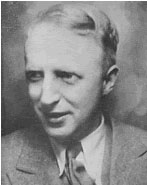Edman, Irwin in Living Philosophies Simon and Schuster, New York 1931[abstract -150 words] — finding the good life amid confusion of too much knowledge
In this piece Edman describes what for him constitutes the good life.
Modern philosophy reminds us that we view the world through the veil of our personal consciousness. Modern psychology makes us aware of our unconscious and sows doubts about the purity of our motives. Modern science presents us with a reality that both complex and abstract. An educated person finds it hard to be certain of anything.
Edman feels this doubt is unwarranted. He finds knowledge of the common world of things as they are about us and the order they manifest are enough for him. Although life in general may have no meaning it may create its own worthwhile purposes and ends.
The good life contains activities that are meaningful and rich in themselves. They range from pleasures of the senses to contemplations of the mind organized into a general pattern of living.


